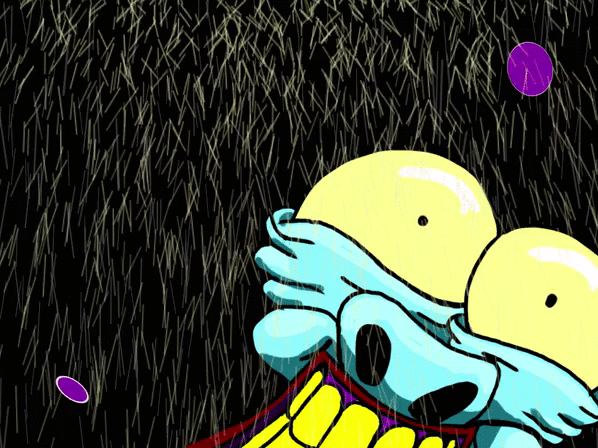Brainstorming

My hand written notes of my brainstorm.
Following on from last terms project where I wanted to make art that took the piss out of people who made a fuss out of nothing, which could be translated as complaining, I've been brainstorming themes that could follow on from this topic.
I have a thought to explore further into why we behave like this. The more widely discussed reasons for this as explained by Will Bowen, who I looked at last term, in his talk on complaining (A Complaint Free World: https://www.youtube.com/watch?v=AYHP0VzYKQU&t=1686s ) are attention seeking, to remove responsibility, to brag, to excuse your own poor performances and, to some extent, relieve stress.
- Suffering
People who complain haven't suffered enough. To put it bluntly. This might be a very narrow minded, opinionated statement to make but there are those who think similarly. I'm not saying I'm pure! Lord knows I've complained when there's been no cause for complaints. Because of this, upon reflection, I've come to realise that when I've made a complaint, a lot of the time its been because I've either not been preoccupied enough (which means that life has been going too smoothly that I've resorted to look for things to complain about to make my life more interesting), or I've been feeling very stressed over a task/ tasks and I need to release my frustrations somehow ( which means my head has been telling me that this task/ tasks are the worst things I could be experiencing right now).
I'm certain many people feel and experience much the same. This project has been an eye opener for me into my life and the lives of my nearest and dearest.
This kind of behaviour is typical in a first world society. Yuval Noah Harari stated in his talk on Nationalism vs Globalism: https://www.youtube.com/watch?v=szt7f5NmE9E&t=286s that society has gotten to the point where we have forgotten what it means to suffer . Yuval says that if we want to experience reality then we need to go and suffer. When we are sheltered from most dangers that this world can throw at us, we begin to make trouble for ourselves within our own bubble of paradise. Te argument is that we don't realise its a paradise we live in because we have not lived a life that's anything but. If we've not experienced a life where there's no trauma, tragedy, danger and a lack of opportunities to escape it all then we're not going to know how bad life can be. Which is why people turn menial, petty problems into big things because its all they know.
The point that I'm trying to get at from the previous paragraph is that suffering is relative. Some people will think that loosing your house keys is the worse thing that can happen, others will think its not. More often than not the people who think loosing your house keys is not an issue tend to be the ones who've experienced, or at least know of, comparatively worse things in life. Therefore these types of people are not going to stir up a fuss about loosing the keys as much as the other.
What is suffering therefore? Is there a scale for it? Because for some reason it is relative to the people who experience it.
According to Yuval, suffering can make you a more honest person and encourages you to get back in touch with your senses. Getting out of your comfort zone, specifically your comfortable cushty lives, will show you what it feels like to live. Suffering reveals more about you than any action or statement you make in civil society.
There must be some some sort scale for suffering. A frame where the seriousness of a situation or an event can be measured and compared to a persons opinion or a general consensus.
- Hypocrisy
The dictionary definition of hypocrisy is a person who pretends to have virtues, morals or religious beliefs etc. that he/she does not actually possess or properly follow, especially a person whose actions belie stated beliefs.
The reason why I mention this word is because the theme I have is potentially hypocritical.
Being hypocritical means judging before you've heard/ seen or experienced the thing your judging before you've experienced it yourself. People who assume that something wont happen based on the person they are now does not mean you wont do it if you were put into that scenario.
My point here is that we hypothesise and assume too much because we've not experienced enough in our lives to successfully say 'Yes I would do that' or 'No I wouldn't do that'. Its become common to talk about hypothetical scenarios in general chit chat because it can be the most interesting thing to do in that moment to lose yourself in an imagined place in a different time to the one your in now. This kind of conversation can be the most exciting thing to happen to someone in their day. The repercussion of this is that we may potentially believe what we say and conjure up an image of ourselves that would do the things we say we would do. For instance, saying that I would do go and rescue my family in a zombie apocalypse is a hypothetical scenario that lets you think highly of yourself without ever experiencing it. In short; you simply don't know what you are like in a proper life threatening situation because you've never experienced and probably never will. In this case, you will never know yourself completely. So why say that you'd do something when you know you wont? For the ego boost and or for a laugh.
- Theory
People who complain a lot are people who haven't suffered enough or experienced enough real life problems to let petty problems go. Therefore that means that they should experience more life changing things to put things into perspective for themselves so that they can begin to priorities certain things in their lives.
But how can you tell people to actually appreciate everything around them? Accept consequences? Or explain that investing time and energy into arguing over small things is pathetic and pointless?
The best thing that people can do is to conjure up hypothetical situations where threats are a big thing explained verbally about how someone would react to that threat without ever experiencing it for real. So how would they really react??














